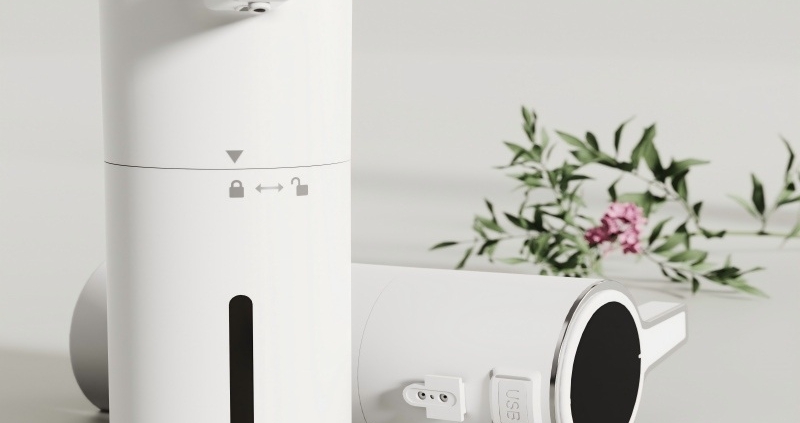The Tariff Tide: How Global Trade Tensions are Reshaping the Hotel Amenities & Soap Dispenser Industry
Introduction: A Fragile Global Economy and Your Hotel’s Bottom Line
In a recent update, the International Monetary Fund (IMF) delivered a nuanced message: while the global growth forecast for 2025 has been modestly upgraded, this resilience is fragile. Beneath the surface of these numbers lies a critical, transient factor—importers, particularly in Asia, are stockpiling goods in anticipation of further US tariff hikes. This “front-loading” effect provides a temporary boost but masks a deeper, more insidious problem: the profound uncertainty of trade policy is stifling global economic activity.
For an industry as globally interconnected as hotel amenities, this is not a distant economic headline; it is a direct operational and strategic challenge. The supply chains that deliver the essential items—from the linens on the beds to the soap dispensers in the bathrooms—are being fundamentally tested. This blog post will delve deep into how these macroeconomic tremors are specifically impacting the hotel amenities sector, using the humble yet ubiquitous soap dispenser as a microcosm of the broader shifts at play. We will explore the immediate shocks, the strategic long-term repercussions, and the new playbook required for hoteliers and suppliers to not just survive, but thrive in this new era of uncertainty.
Part 1: The IMF’s Diagnosis – Understanding the “Front-Loading” Phenomenon
The IMF’s analysis points to a critical dynamic. As the United States signals potential further tariffs on a wide range of imports, companies that rely on these goods are not waiting. They are rushing to place larger, earlier orders to get products into the country before the new duties take effect. This creates a short-term spike in trade volumes and manufacturing output, which in turn artificially inflates economic growth figures.
However, as the IMF cautions, this “pull-forward” of demand is inherently transient. Once the tariffs are implemented or the threat passes, this artificial demand evaporates, often leading to a sharp downturn—a “hangover” effect. For manufacturers, this creates a “feast-or-famine” cycle that is incredibly difficult to manage. It disrupts production planning, inventory management, and cash flow.
Furthermore, the “uncertainty” itself is a powerful economic suppressant. When businesses cannot predict the cost of inputs or the rules of trade in six months’ time, they delay long-term investments, hesitate on expansion, and become cautious in their strategic planning. This climate of hesitation is what the IMF warns could have long-lasting, corrosive effects on global growth.
Part 2: The Hotel Amenities Industry: A Web of Global Interdependence
The hotel amenities industry is a perfect case study in modern globalization. A typical hotel’s supply chain is a complex, international network:
Raw Materials: Plastics for bottles and dispensers from China or Southeast Asia. Metals for components from various global sources. Chemicals for soaps, shampoos, and cleaning agents from specialized producers in Europe or North America.
Manufacturing & Assembly: A significant portion of the world’s amenity containers, including soap dispensers, is manufactured in Asia, with China being a dominant force due to its scale, expertise, and cost-effectiveness.
Logistics & Shipping: A global network of freight forwarders, shipping lines, and port operators move these finished goods to hotels worldwide.
This intricate system, honed over decades for efficiency and cost-saving, is now a primary vector for the transmission of trade policy shocks. A tariff on Chinese plastics increases the cost of raw materials. A duty on finished goods from Vietnam makes the final product more expensive. A logistical snarl in a major Asian port delays deliveries for weeks. The hotel amenities sector sits directly in the crosshairs of these disruptions.
Part 3: The Soap Dispenser as a Canary in the Coal Mine
Let’s zoom in on the soap dispenser. It seems like a simple product, but it is a nexus of global trade flows and a critical touchpoint for the guest experience. The impact of the current trade environment on this single item is multifaceted.
3.1. The Immediate Impact: Soaring Costs and Supply Chain Volatility
Price Inflation: This is the most direct impact. If a US-based hotel group sources its soap dispensers from a factory in China, and the US imposes a 25% tariff on these items, the cost immediately jumps by a quarter. This cost increase must be absorbed by the supplier, passed on to the hotel, or shared between them. In an industry with tight margins, this is a significant blow.
The Inventory Crunch and “Bullwhip Effect”: The “front-loading” described by the IMF creates a massive ripple effect, known as the “bullwhip effect.” A hotel chain, fearing a price hike or shortage, might double its order for the next quarter. Their distributor, seeing this increased demand, triples its order from the manufacturer. The manufacturer, in turn, scrambles to ramp up production, sourcing more raw materials and working overtime.
When the tariff threat materializes or passes, the hotel is left with a two-year supply of soap dispensers, and the orders to the manufacturer plummet to zero. The manufacturer is left with excess capacity, unpaid-for raw materials, and potentially has to lay off staff. This volatility is damaging to all parties involved.
Lead Time Lunacy: The rush to ship goods before tariffs hit clogs ports and exhausts shipping container availability. What was once a reliable 45-day lead time for a container of dispensers can suddenly stretch to 90 or 120 days. For hoteliers, this means needing to forecast demand much further in advance, tying up capital in larger safety stocks, and risking stock-outs that directly impact guest satisfaction.
3.2. The Strategic Long-Term Shifts: Rethinking the Entire Product Lifecycle
The transient “front-loading” is masking a more permanent shift. The uncertainty is forcing a fundamental re-evaluation of the soap dispenser’s role and supply chain.
The “Friend-Shoring” and Regionalization of Supply Chains: The vulnerability of a single-source supply chain in a geopolitically tense region has become undeniable. In response, both amenity suppliers and large hotel chains are actively pursuing a strategy of “friend-shoring”**—shifting production to allied countries with lower political risk.
Option A: Shift to Southeast Asia. Factories in Vietnam, Thailand, and Indonesia are seeing a surge in interest. While they may not yet have the scale of China, they offer a diversification of risk.
Option B: Near-Shoring to Mexico or Eastern Europe. For hotels in the Americas, sourcing from Mexico becomes increasingly attractive despite potentially higher costs, due to reduced shipping times and tariff advantages under USMCA. Similarly, European hotels may look to Turkey or Eastern Europe.
The Quality vs. Cost Calculus: The soap dispenser is no longer just a utilitarian item. In an era of conscious consumerism, hotels are re-evaluating it as part of their sustainability and brand identity. The trade war accelerates this.
Investment in Durability: Instead of cheap, disposable plastic dispensers that need frequent replacement, there is a stronger business case for investing in high-quality, durable dispensers made of metal, glass, or certified recycled plastics. While the upfront cost is higher, the Total Cost of Ownership (TCO) over 5-10 years becomes more favorable, especially if it reduces dependency on a volatile supply chain.
The Refill Revolution: A move towards large, bulk-fill systems that are refilled on-site by staff, rather than replacing small, pre-filled plastic cartridges, drastically reduces plastic waste and the frequency of supply orders. This makes the supply chain less sensitive to shipping disruptions and tariffs on disposable components.
Innovation in Materials and Design: Uncertainty breeds innovation. The pressure of cost and supply is pushing R&D into alternative materials. We are seeing a rise in:
Biodegradable and Compostable Polymers: Dispensers made from materials like PLA (polylactic acid), derived from corn starch or sugarcane.
Upcycled Ocean-Bound Plastics: Using collected plastic waste to create dispensers, a powerful marketing story that also mitigates reliance on virgin plastic markets.
Modular Design: Designing dispensers with easily replaceable parts (pumps, lids, reservoirs). If a pump fails, you replace the mechanism, not the entire unit. This “right-to-repair” approach extends product life and reduces the volume of whole goods that need to be shipped.
Part 4: A New Playbook for Hoteliers and Suppliers
Navigating this new normal requires a proactive, strategic approach. The old model of simply sourcing the cheapest option is no longer viable.
For Hoteliers:
- Conduct a Deep-Dive Supply Chain Audit:Don’t just know your supplier; know your supplier’s supplier. Where are the raw materials sourced? Where is the manufacturing done? Map the vulnerabilities.
- Strengthen Partner Relationships:Move from a transactional relationship with your amenity suppliers to a strategic partnership. Collaborate on forecasting, share your long-term plans, and work together to find solutions, whether that’s exploring new materials or diversifying production locations.
- Re-evaluate the Amenities Strategy:Is the disposable, single-use amenity model fit for the future? Consider a permanent shift to high-quality, refillable systems. Calculate the TCO, including the hidden costs of supply chain volatility, rather than just the unit price.
- Embrace and Communicate Sustainability:The changes forced by trade tensions can be framed as a positive brand story. “In response to global challenges, we have invested in durable, refillable dispensers made from ocean-bound plastic, reducing our waste and carbon footprint.” This turns a supply chain problem into a guest-facing virtue.
For Amenity Suppliers:
- Diversify, Diversify, Diversify:Establish manufacturing footprints in at least two different geographic regions (e.g., Asia and Mexico, or Eastern Europe and Southeast Asia). This provides resilience against regional disruptions.
- Invest in Product Innovation:Lead with value, not just cost. Develop the next generation of dispensers that are more durable, sustainable, and serviceable. This creates a competitive moat that is harder for low-cost, single-source competitors to cross.
- Enhance Supply Chain Visibility and Agility:Implement technology that provides real-time visibility into inventory levels, production status, and shipping logistics. Build stronger relationships with raw material suppliers and logistics providers to create a more agile and responsive network.
- Become a Strategic Advisor to Your Clients:Don’t just sell products; sell solutions and insights. Help your hotel clients understand the macroeconomic forces at play and guide them toward more resilient and cost-effective amenity strategies. This cements your role as an indispensable partner.
Conclusion: Beyond the Transient Tide
The IMF’s warning is clear: the current boost from “front-loading” is a mirage. The underlying reality is one of sustained uncertainty and structural change. For the hotel amenities industry, and for a product as seemingly simple as the soap dispenser, this represents a pivotal moment.
The pressures of trade tensions, tariffs, and supply chain volatility are not just inflating costs; they are forcing a necessary and overdue evolution. They are accelerating the shift away from a fragile, hyper-efficient global model towards a more resilient, regionalized, and responsible one.
The hotels and suppliers who will succeed are those who see beyond the immediate price shock. They are the ones reimagining the soap dispenser not as a cheap commodity, but as a durable, sustainable, and brand-defining asset. They are building supply chains that are robust and transparent. In doing so, they are not only insulating themselves from the next economic shock but are also building a stronger, more sustainable, and more guest-centric operation for the future. The tide of global trade is shifting, and it’s time to build a sturdier boat.





